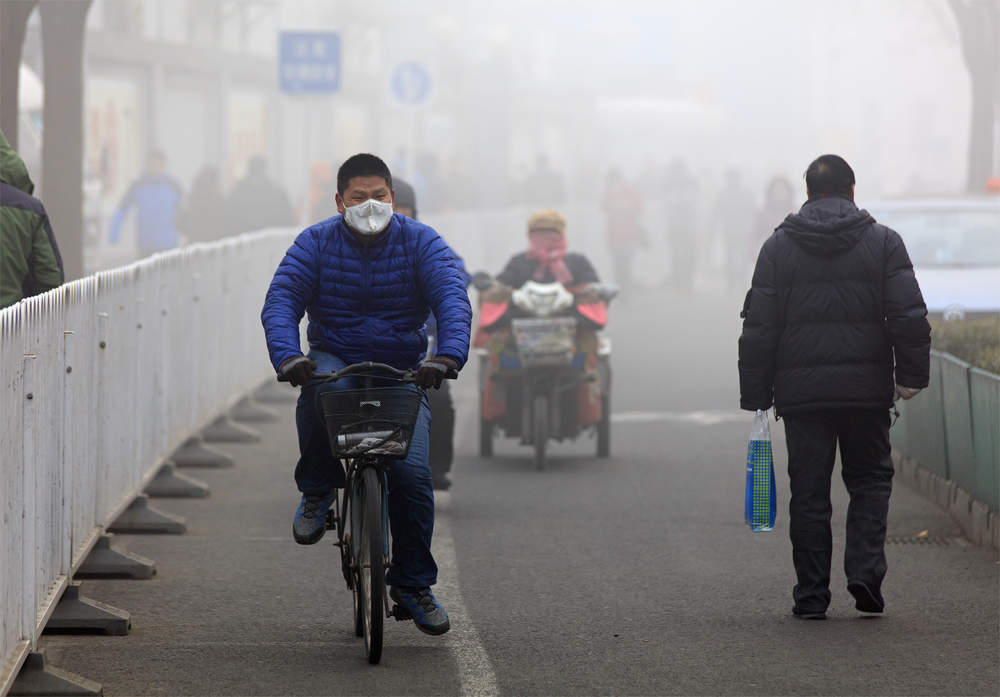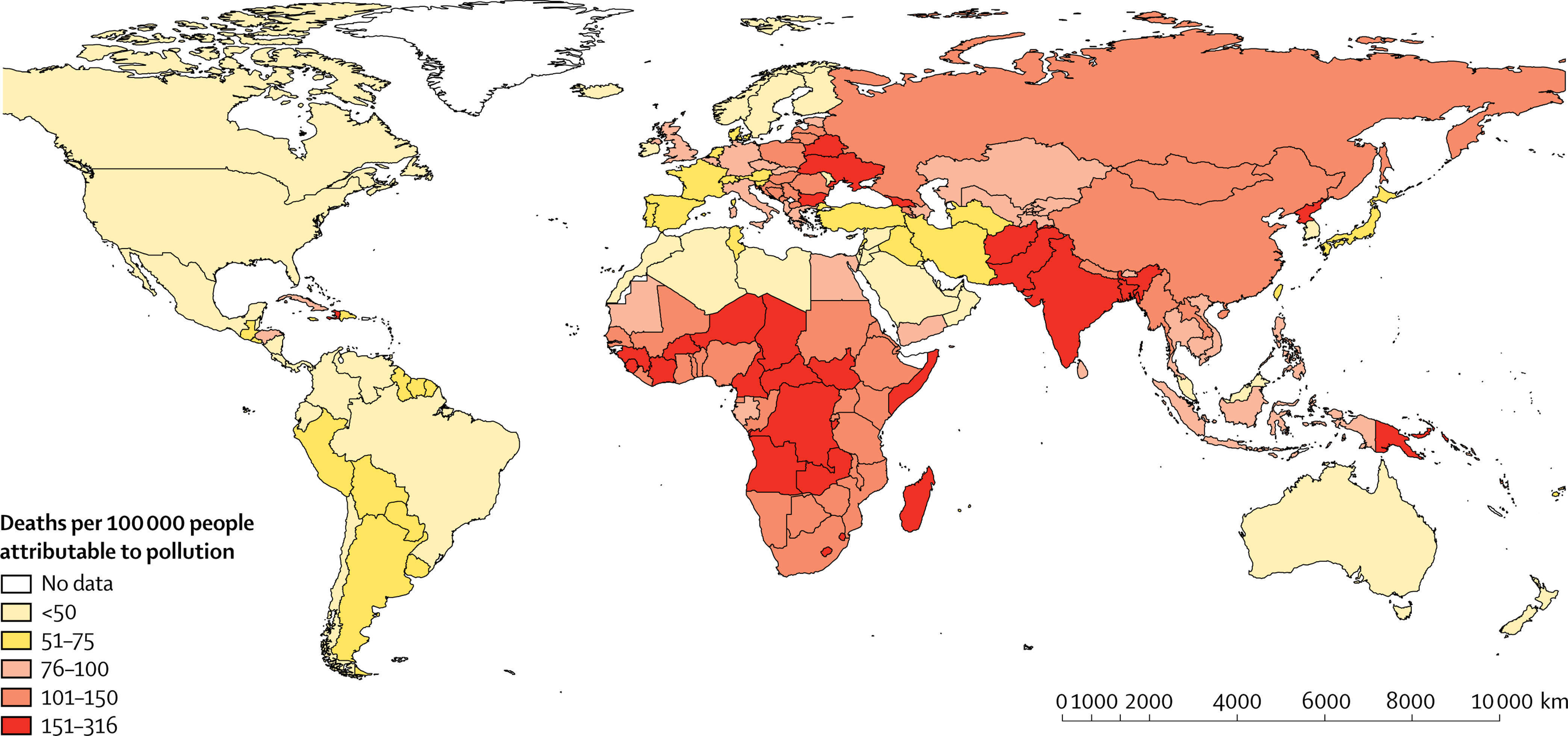
Pollution killed 9m people in 2015, causing three times as many deaths as Aids, tuberculosis and malaria combined — as well as 15 times more than those caused by wars and all other forms of violence — according to the report published in the medical journal, The Lancet.
This accounts for 16 percent — or one in six — of all deaths worldwide which were linked to mostly air contamination, but also water contamination and exposure to pollution in the workplace.
The results come after a two-year study involving the British Medical Journal, several international organisations, NGOs and around forty researchers, all specialising in health and environmental issues.
Air pollution has been found to be responsible for 6.5m deaths each year, mainly through diseases such as heart disease, lung cancer and stroke.
Meanwhile, polluted water is said to be linked to 1.8m deaths, as a result of poor sanitation or contamination, which cause gastrointestinal diseases and parasitic infections.
Pollution in the workplace causes around 800,000 deaths, through exposure to toxic substances.
The report suggested that this assessment is “probably underestimated” given “the many emerging chemical pollutants that remain to be identified”.

“Poor and vulnerable” countries are the worst effected according to The Lancet, with 92 percent of death linked to pollution happening in less economically developed countries, and largely concerning minorities within the population.
Pollution may be responsible for almost a quarter of deaths in rapidly industrialising countries such as India, Pakistan, China, Madagascar and Kenya.
This burden remains “neglected by both governments and development organisations”, according to the journal, with The Lancet calling for urgent action against to bust “the myth that pollution is an inevitable consequence of economic development”.







